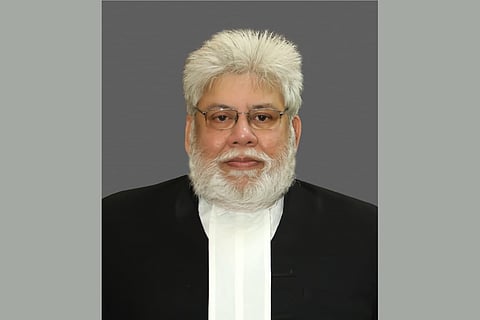

Over 200 advocates practicing in the Madras High Court have written a letter to the Supreme Court Collegium asking it to reconsider its recommendation to transfer Chief Justice Sanjib Banerjee to Meghalaya High Court. In the letter, the 237 advocates have voiced concern over the decision, and have asked why “a competent, fearless judge and an efficient administrator” is being transferred within ten months of assuming office. In the letter, the advocates have said, "While transfers for better administration of justice may be necessary in principle, members of the Bar have a right to know why a competent, fearless judge and an efficient administrator of a large High Court where more than 35,000 cases were filed this year should be transferred to a Court where the total number of cases instituted in a month is on an average 70-75."
The advocates have written the letter to the five members of the Collegium, which makes decisions on the transfers and appointments of High Court and Supreme Court judges in India. The Supreme Court Collegium is currently headed by Chief Justice of India NV Ramana, and also has Justice UU Lalit, Justice AM Khanwilkar, Justice DY Chandrachud and Justice L Nageswara Rao as members.
The letter, signed by 237 advocates of the Madras High Court, states that similar transfers in the past have “led to speculations i) whether the transfer was caused due to improprieties by the concerned judge or ii) whether there were external factors that penetrated the decision making process when such strong pointers existed.”
“It damages an honest judge’s reputation and tends to lower the image of the judiciary in public. It is the secrecy that surrounds the Collegium’s decisions and lack of stated criteria that lead to a perception of arbitrariness. Ultimately, the judiciary as an institution stands to lose,” the letter says.
“Justice Banerjee has added heft to the office of Chief Justice of one of the oldest Courts in the country. He steered the Court through this unprecedented and difficult period by ensuring that the justice system continues to function unhampered and unhindered by the pandemic. Chief Justice Banerjee has consistently sought accountability from authorities at all levels in their discharge of constitutional and statutory duties. He is known to be impartial, open to suggestions from all quarters for improving the functioning of the justice system and has undertaken proactive measures to strengthen the judiciary,” the letter says.
The advocates have also said that such a quick transfer between courts also hampers the process of justice in the said courts.
“It takes at least a few months for a Chief Justice after assuming charge as the head of the State judiciary to understand the demands and requirements that may vary in each State, to establish a healthy working relationship with her/his peers, earn the respect and trust of the Bar and put in place effective administrative measures to strengthen the system,” the letter adds.
Justice Sanjib Banerjee was named the Chief Justice of the Madras High Court on January 4, 2021. The recommendation to transfer him to Meghalaya was made in a Collegium meeting held on September 16, 2021. The official notification announcing the recommendation was made on November 9.
“This raises the worrisome question of lack of transparency and opacity in decision making by the Collegium. Even if the Collegium is privy to information that may have prompted such a drastic measure, members of the Bar and the public have a right to know the reasons for this transfer. Until that is done, the only conclusion that can be drawn is that a judge is being rebuked for discharging his duties without fear or favour,” the letter by the advocates says.
“It is known in legal circles in Tamil Nadu that in order to ensure a totally free and independent judiciary, inquiries were afoot under the tenure of Chief Justice Banerjee to check corruption in the judiciary. His intolerance for corruption and inefficiency is well known and widely appreciated. The instant transfer would quell any such effort to strengthen the judiciary in the State,” the letter adds.
“This representation ought not to be seen as espousing the cause of an individual but as an earnest request to protect the institution and the independence of the judiciary,” the letter concludes.
Two years ago, a similar transfer of the Chief Justice from Madras High Court to Meghalaya High Court had triggered a big row. In 2019, the then Chief Justice Vijaya Tahilramani had resigned in protest of her transfer to Meghalaya High Court.